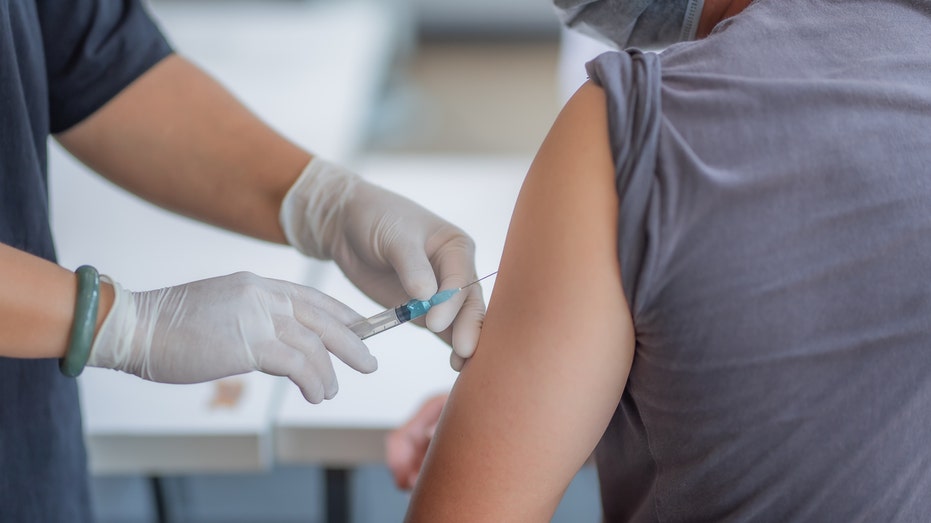Can your employer require you to get a COVID-19 vaccine to go to work?
Enough coronavirus vaccines should be available for everyone by second quarter 2021: Azar
Health and Human Services Secretary Alex Azar on the United Kingdom approving a coronavirus vaccine, the CDC shortening quarantine guidelines and school reopening’s.
If you're wondering whether your employer can require you to get a COVID-19 vaccine to return to work, the short answer is yes. But that doesn't mean employers won't face a "legal minefield" if and when they decide to implement a vaccination policy.
Continue Reading Below
Although employees can be required to take a test as a precondition of their returning to work, according to trial attorney Misty Marris, "there is no world where there is a COVID-19 mandatory vaccination policy that doesn't have exceptions to it."
'GAME-CHANGER' CORONAVIRUS VACCINE COULD SOON BE ON WAY
Marris, who deals heavily in employment law, is the co-managing partner of the New York office of Gordon Rees Scully Mansukhani LLP.
As the U.S. waits for the COVID-19 vaccines from Pfizer/BioNTech, as well as Moderna, to get emergency use authorization from the Food and Drug Administration, employers have to be ready to set up a framework for how employees will be allowed to come back safely.
For both public and private employers this may mean encouraging employees to get vaccinated or implementing mandatory vaccination programs.
The Emergency Operations Center (EOC), which has issued guidance to employers throughout the pandemic, says the virus meets the standard of a "direct threat."
(iStock) Since the virus is deemed a direct threat, employers have the ability to implement health checks in the workplace that would not normally be allowed under federal law in pre-pandemic times, according to Marris. This means employers have the ability to take someone's temperature before they come in or tell someone that they need to leave because they are exhibiting symptoms. DOES MY EMPLOYER HAVE TO SAY IF A COWORKER HAS THE CORONAVIRUS? "While there is nothing that says it's illegal" for an employer to have mandatory vaccination program, that doesn't mean it isn't a thorny, thorny road." However, every mandatory program will have to take into consideration other aspects of employment laws, Marris said, which she predicts will result in various accommodation requests. Two major exemptions that are going to come into play are religious exemptions and ones related to disability. Under Title VII of the Civil Rights Act of 1964, a sincerely held religious belief can serve as the basis for a religious exemption. "In the context of a vaccine, an employee could ask for an exemption to a mandatory vaccination on the basis of religion," Marris said, adding that the employer is then required to consider whether the accommodation can be granted. In this case, this may mean remote work or social distancing. However, if the employer doesn’t grant the accommodation "they have to prove that the accommodation poses an undue hardship on the company." Secondly, employers have to take into consideration the Americans with Disabilities Act of 1990 (ADA). GET FOX BUSINESS ON THE GO BY CLICKING HERE If an employee requests an accommodation under the ADA, they have to establish that they have a disability. You may have an employee that says they have a chemical sensitivity to something in the vaccine. Employees can also cite allergies as a reason. However, there is a slew of other things to consider, including people saying they have anxiety related to the possible side effects of vaccinations. There is a question on whether that would qualify as a medical condition, which depends on what jurisdiction someone is in. "Whether courts extend protection for anxiety in a pandemic world is unknown," she added. At the end of the day, however, "employers want to think about more than just liability," Marris said. "You want to think about your workforce, workforce morale." CLICK HERE TO READ MORE ON FOX BUSINESS Source: Read Full Article
